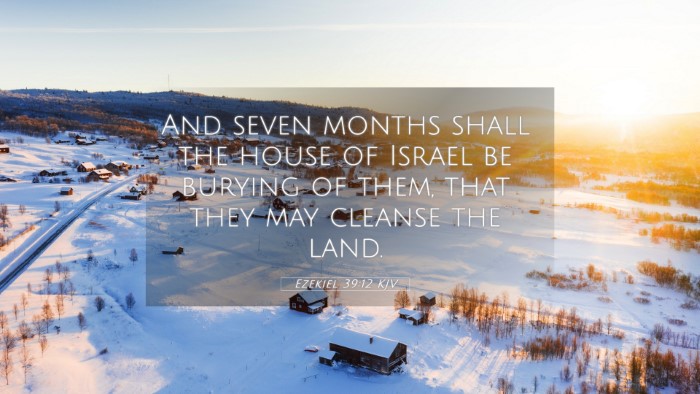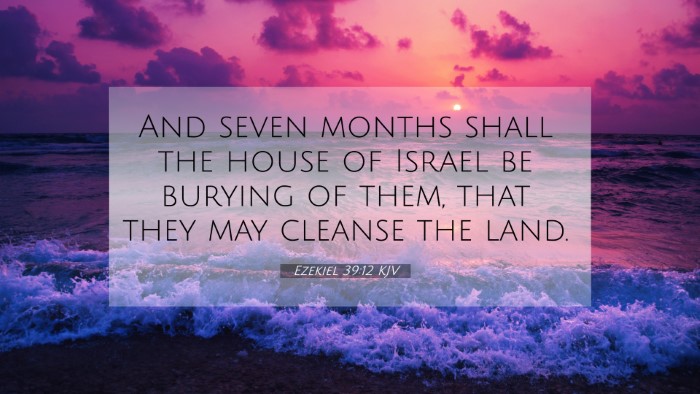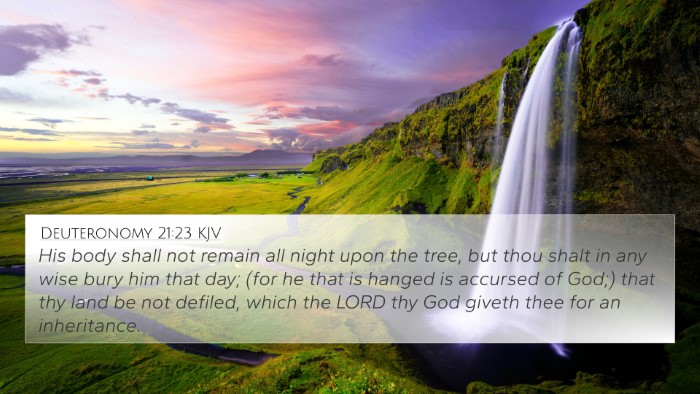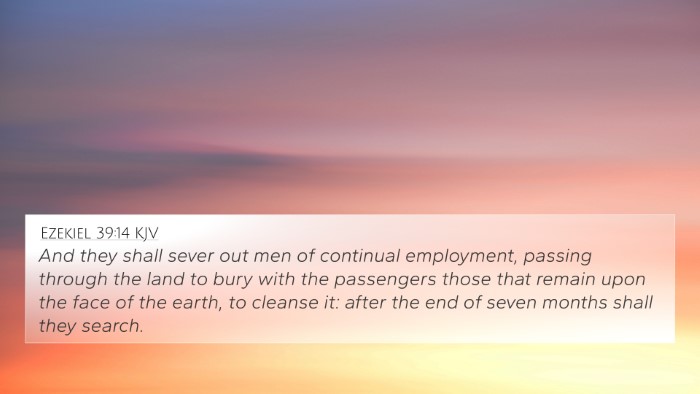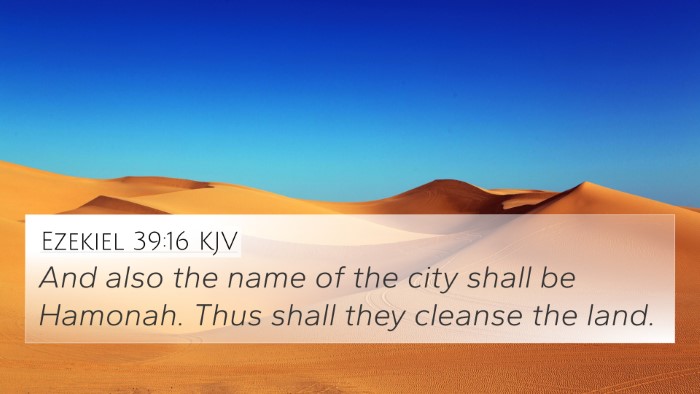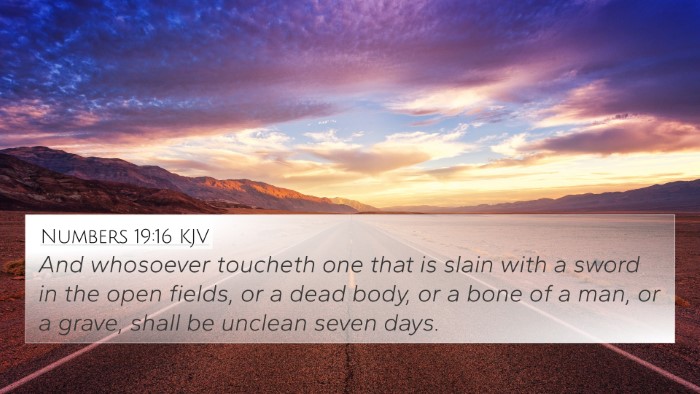Ezekiel 39:12 - Understanding the Verse
Ezekiel 39:12 states:
"And seven months shall the house of Israel be burying of them, that they may cleanse the land."
This verse speaks to the aftermath of judgment depicted in the previous chapters of Ezekiel. It details a process of purification and restoration following a catastrophic event.
Summary of Commentary Insights
The insights from various public domain commentaries, including those by Matthew Henry, Albert Barnes, and Adam Clarke, provide a deep understanding of the implications of this verse.
- Matthew Henry's Commentary: Henry emphasizes the significance of proper burial as a means to restore sanctity to the land. It reflects on the consequences of sin and God's eventual restoration, showcasing His mercy even after severe judgment.
- Albert Barnes's Notes: Barnes highlights that the seven months symbolize a thorough completion of the burial process. This period signifies a time for the people of Israel to collectively mourn and reflect on their disobedience while emphasizing a divine promise of renewal.
- Adam Clarke's Commentary: Clarke points out that the act of burying the dead takes on both a physical and spiritual dimension. Burial not only signifies a closure to a violent end but also purifies and restores the land as the people seek to reconnect with their God.
Thematic Connections
This verse can be connected with various biblical themes regarding judgment, restoration, and purification. The following points elaborate on these connections:
- Judgment and Consequences: The burial process acts as a symbolic representation of God’s judgment and the severe consequences of sin.
- Restoration of Community: The entire community is involved in the act of cleansing the land, showing a collective responsibility towards restoration.
- Divine Mercy: Even through judgment, God's intention is to bring about a renewal and to establish a covenant relationship with His people.
Bible Verse Cross-References
To further understand Ezekiel 39:12, several Bible verses can be cross-referenced:
- Numbers 19:11-13: Discusses purification after touching a dead body—showing the significance of death and its impact on the community.
- Isaiah 26:21: Refers to God punishing the inhabitants of the earth for their iniquity, tying into the idea of judgment and the need for cleansing.
- Revelation 21:1-4: A vision of new beginnings after judgment, resonating with the theme of restoration seen in Ezekiel.
- Ezekiel 36:25-27: God promises to cleanse Israel from all its impurities—an essential promise of renewal.
- Psalm 51:7: "Purge me with hyssop, and I shall be clean:" illustrates the need and desire for spiritual cleansing.
- Leviticus 14:33-53: Describes cleansing of a house which had become unclean—another dimension of purification.
- Jeremiah 33:6-9: Promises restoration and healing for Israel, echoing the themes found in Ezekiel.
Using Cross-References for Deeper Understanding
Tools for Bible cross-referencing can enhance one’s study of scripture, providing clarity and depth. Here’s how to effectively use cross-references:
- Utilize a Bible concordance to find related verses based on themes.
- Employ a cross-reference Bible study guide for thematic analysis.
- Engage in cross-referencing Bible study methods by identifying similar phrases, images, or concepts across different scriptures.
- Explore Bible chain references to follow the flow of ideas from one verse to another.
Conclusion
In conclusion, Ezekiel 39:12 serves as a profound reminder of the importance of purification after judgment, showcasing God's desire for restoration and renewal among His people. Through careful examination of this verse and its connections to other Biblical texts, believers can gain a deeper understanding of God's overarching narrative of redemption.

